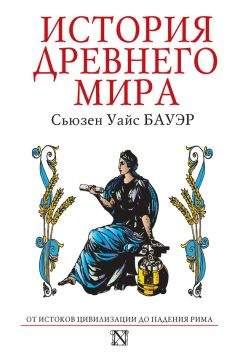8. Plutarch, Artaxerxes, in Plutarch’s Lives, vol. 2, The Dryden Translation, p. 646.
9. Xenophon, The Persian Expedition, 1.4.
10. Ibid., pp. 86–87.
11. Ibid., 4.5.
12. Ibid., 4.7.
13. Plutarch, Artaxerxes, in Plutarch’s Lives, vol. 2, The Dryden Translation, p. 658.
14. Clayton, pp. 201–202.
15. Hellenica, 5.19, in The Works of Xenophon, vol. 2, translated by H. G. Dakyns (1892).
16. Ibid., 5.23.
17. Clayton, p. 203.
18. J. M. Cook, Persian Empire, p. 48.
19. Panegyricus 50, in Isocrates, Isocrates II, translated by Terry L. Papillon (2004), p. 40.
20. Panegyricus 166, in Isocrates, p. 68.
21. Green, p. 14.
22. Ibid., p. 22.
23. Justin, The History, 7.5, in William Stearns Davis, ed., Readings in Ancient History, vol. 1 (Allyn and Bacon, 1912).
24. Green, pp. 23–24.
25. Alexander 6, in Plutarch, Greek Lives. 16. Alexander 3, in Plutarch, Greek Lives.
27. To Philip 15–16, Isocrates, p. 78.
28. Diodorus Siculus, 16.14.
29. Pomeroy et al., p. 389.
30. Justin, History, 8.8.
31. Alexander 10, in Plutarch, Greek Lives.
32. Частично эта история пересказана Диодором Сицилийским, а также Аристотелем в его «Политике» (перевод Рекхэма); см. также Guy MacLean Rogers, Alexander: The Ambiguity of Greatness (2004), pp. 31–34.
33. Alexander n, in Plutarch, Greek Lives.
ГЛАВА ШЕСТЬДЕСЯТ ДЕВЯТАЯ. РИМ УСИЛИВАЕТ ХВАТКУ
1. Livy, Rome and Ltaly: Books VI–X of The History of Rome from Its Foundation, 6.42, translated by Betty Radice (1982), p. 95.
2. Ibid., 6.42.
3. Edward T. Salmon, The Making of Roman Italy (1982), p. 5.
4. Polybius, Rise of the Roman Empire 3.24.
5. Mary T. Boatwright et al, The Romans: From Village to Empire (2004), p. 79.
6. Livy, Rome and Italy, 7.29, p. 135.
7. Ibid., 7.30, pp. 136–137.
8. Ibid., 8.6, pp. 164–165.
9. Ibid., 8.10–11, pp. 171–173.
10. Salmon, p. 40.
11. Livy, Rome and Italy, 8.14, p. 178.
12. Boarwright et al., p. 82.
13. Ibid., p. 84.
14. Diodorus Siculus, 9.9.
15. Soren et al., p. 91.
16. Ibid., pp. 90–91, 128–130.
17. Diodorus Siculus, 20.6–7.
18. Soren et al., p. 92.
19. Livy, Rome and Italy, 10.13, 304–305.
20. Ibid., 10.28, pp. 327–328.
ГЛАВА СЕМИДЕСЯТАЯ. АЛЕКСАНДР И ВОЙНЫ ДИАДОХОВ
1. Green, p. 114.
2. Plutarch, The Life of Alexander the Great, translated by John Dryden (2004), p. 13
3. Green, p. 118; Plutarch, Alexander the Great, p. 13.
4. Diodorus, Siculus, 17.5–6.
5. Ibid., 17.17.
6. Quintus Curtius Rufus, The History of Alexander (позднее сведена Джоном Ярдли), translated by John Yardley (2001), p. 23; также Arrian, The Campaigns of Alexander, 1.12, translated by Aubrey de Selincourt (1971).
7. Arrian, 1.15, p. 73.
8. Didodorus Siculus, 17.20; Arrian, 1.16.
9. Arrian, 1.17.
10. Rufus, 3.15–18, p. 27.
11. Arrian, 2.8.
12. Rufus, 3.12, p. 42.
13. Arrian, 2.15, p. 128.
14. Alexander 29, in Plutarch, Greek Lives, p. 339.
15. G. M. Rogers, pp. 124–145.
16. Arrian, 3.23.
17. G. M. Rogers, p. 135.
18. Arrian, 4.9.
19. Ibid., 5.4, p. 259.
20. Ibid., 5.9, p. 267.
21. Alexander 63, in Plutarch, Greek Lives, p. 369.
22. Rufus, 9.19.
23. Plutarch, Alexander the Great, p. 64.
24. Ibid., p. 67.
25. Rufus, 10.3.14.
26. Plutarch, Alexander the Great, p. 71.
27. Rufus, 10.6.13.
28. Plutarch, Alexander the Great, p. 72; also Diodorus Siculus, 18 and 19.
29. Rufus, 10.9.1.
30. Ibid., 10.10.7–8.
31. Sarvepalli Radhakrishnan and Charles A. Moore, eds. A Soureebook in Indian Philosophy (1957),
p. 198.
32. Vohra, p. 25.
33. Plutarch, Pyrrhus, in Plutarch’s Lives, vol. 1, The Dryden Translation, p. 520.
34. Plutarch, Demetrius, in Plutarch’s Lives, vol. 2, The Dryden Translation, p. 480.
35. Plutarch, Pyrrhus, in Plutarch’s Lives, vol. 1, The Dryden Translation, p. 537.
ГЛАВА СЕМЬДЕСЯТ ПЕРВАЯ. РЕЛИГИЯ ГОСУДАРСТВА МАУРЬЕВ
1. Keay, p. 88.
2. Thapar, Early India, p. 5.
3. Wolpert, p. 57.
4. Keay, p. 90.
5. Ibid., p. 91.
6. Thapar, Early India, p. 180.
7. Translated by Romila Thapar in Asoka and the Decline of the Mauryas (1998), p. 255.
8. Ibid., pp. 255–256.
9. Ibid., p. 256 and Keay, pp. 91–92.
10. Keay, p. 95.
11. Wolpert, p. 64. История Махинды основана на: Dipavamsa 7, 28–31; см. введение Макса Миллера к: Sacred Books of the East, vol. 10: The Dhammapada (1981).
12. Vohra, p. 25.
13. Ibid.
ГЛАВА СЕМЬДЕСЯТ ВТОРАЯ. ПЕРВЫЙ ИМПЕРАТОР, ВТОРАЯ ДИНАСТИЯ
1. Charles O. Hucker, China’s Imperial Past: An Lntroduction to Chinese History and Culture (1975),
p. 40.
2. Ibid., p. 41.
3. Ch’ien, p. 83.
4. Ibid., p. 123.
5. Ibid., p. 130.
6. Ibid., p. 123.
7. Fairbank and Goldman, p. 56.
8. Hucker, pp. 43–44.
9. Ch’ien, p. 140.
10. Ibid., p. 147.
11. Sima Qian, «The Biography of the Chief Minister of Qin», in Historical Records, translated by Raymond Dawson (1994), p. 31.
12. Sima Qian, «The Annals of Qin», in Historical Records, p. 69.
13. Jorge Luis Borges, «The Wall and the Books», in Daniel Schwartz, The Great Wall of China (2001), p. 10.
14. Ann Paludan, Chronicle of the Chinese Emperors: The Reignby-Reign Record of the Rulers of Imperial China (1998), pp. 18–19.
15. Ch’ien, p. 155.
16. Arthur Cotterell, The First Emperor of China (1981), p. 28.
17. Ch’ien, p. 156.
18. Ibid., pp. 161–162.
19. Denis Twitchett and Michael Loewe, eds., The Cambridge History of China, Volume I: The Ch’in and Han Empires, 221 BC – AD 220 (1986), p. 113.
20. Ibid., p. 117.
21. Sima Qian, Records of the Grand Historian: Han Dynasty I, translated by Burton Watson (1993), pp. 74–75.
ГЛАВА СЕМЬДЕСЯТ ТРЕТЬЯ. ВОЙНЫ СЫНОВЕЙ
1. Plutarch, Demetrius, in Plutarch’s Lives, vol. 2, The Dryden Translation, p. 465.
2. Diodorus Siculus, 21.12.
3. Plutarch, Pyrrbus, in Plutarch’s Lives, vol. I, The Dryden Translation, pp. 540–541, and Polybius, Rise of the Roman Empire, 2.43.
4. Polybius, Rise of the Roman Empire, 1.5, p. 45.
5. Ibid., 1.7–12.
6. Ibid., 1.20, p. 62.
7. J. H. Thiel, A History of Roman Sea-power before the Second Punic War (1954), p. 63.
8. Polybius, Rise of the Roman Empire, 1.21, p. 64.
9. Polybius, The Histories, 1.75, translated by Evelyn Shuckburgh (1889), pp. 83, 85.
10. Polybius, Rise of the Roman Empire, 1.58, p. 105.
11. Livy, The War With Hannibal: Books XXI–XXX of The History of Rome from Its Foundation,
21.41, translated by Aubrey de Selincourt (1965), p. 66.
12. Polybius, Rise of the Roman Empire, 1. 63, p. 109.
13. Plutarch, Cleomenes, in Plutarch’s Lives, vol. 2, The Dryden Translation, p. 351.
14. Polybius, Rise of the Roman Empire, 5.34, p. 291.
15. Clayton, p. 211.
16. Polybius, Rise of the Roman Empire, 5.34, p. 292.
17. Ibid., 15.33, p. 491.
18. Josephus, Antiquities of the Jews, 12.3.3.
19. Polybius, Rise of the Roman Empire, 3.11, p. 189.
20. Polybius, Rise of the Roman Empire, 2.1, pp. 11–12.
21. Soren et al., p. 102.
22. Polybius, Rise of the Roman Empire, 3.20–21.
23. Livy, The War with Hannibal, 21.1, p. 23.
24. Polybius, Rise of the Roman Empire, 3.33, p. 209.
25. Ibid., 3.49.
26. Livy, The War with Hannibal, 21.32, p. 56.
27. Ibid., 21.47, p. 72.
28. Polybius, Rise of the Roman Empire, 3.68, p. 237.
29. Livy, The War with Hannibal, 11.57, p. 83.
30. Ibid., 22.7, p. 102.
31. Polybius, Rise of the Roman Empire, 3.90, p. 257.
32. Ibid., 3.118, p. 275.
33. Livy, The War With Hannibal, 27.48, p. 493.
34. Ibid., 27.51.
35. Ibid., 30.20, p. 644.
36. Ibid., 30.36, p. 664.
37. Leonard Cottrell, Hannibal: Enemy of Rome (1992), p. 242.
ГЛАВА СЕМЬДЕСЯТ ЧЕТВЕРТАЯ. РИМСКИЕ ОСВОБОДИТЕЛИ И ЗАВОЕВАНИЯ СЕЛЕВКИДОВ
1. Livy, The Dawn of the Roman Empire: Books 31–40 [of The History of Rome from Its Foundation],
33.19, translated by J. C. Yardley (2000), pp. 112–113.
2. Polybius, Rise of the Roman Empire, 18.45, p. 514.
3. Ibid., 18.46, p. 516.
4. Ibid., 3.11, p. 189.
5. Livy, Dawn of the Roman Empire, 36.17, p. 268.
6. Plutarch, Flamininus, in Plutarch’s Lives, vol. 1, The Dryden Translation, p. 515.
7. Этот сюжет, помимо других источнико, основан на «Майтрейо-панишаде» из «Сама-Веды».
8. Polybius, Histories, 23.7.
9. Livy, Dawn of the Roman Empire, 40.5, p. 486.
10. Polybius, Histories, 27.1.
11. Livy, The History of Rome, vol. 6, translated by E. Roberts (1912), 42.36.
12. Ibid., 42.26.
13. Ibid., 45.12.
14. Josephus, Wars of the Jews, 1.1, in The Works of Josephus, p. 546.
15. John Bright, A History of Israel (1974), pp. 424–425.
16. Ibid., p. 424.
17. 2 Mace. 6:10, Revised Standard Version.
18. 2 Mace. 8:1, 7–9.
19. Josephus, Wars of the Jews, 1.4.
20. Ibid.
21. A. N. Sherwin-White, The Roman Citizenship (1973), p. 42.
ГЛАВА СЕМЬДЕСЯТ ПЯТАЯ. МЕЖДУ ВОСТОКОМ И ЗАПАДОМ
1. Sima Qian, Records of the Grand Historian, p. 77, 84.
2. Di Cosmo, Ancient China and Its Enemies, p. 157.
3. Ibid., p. 165.
4. Burton Watson, trans., Records of the Grand Historian of China: Translated from the Shih chi of Ssuma Ch’ien, vol. 2 (1968), p. 129.
5. Twitchett and Loewe, p. 384.
6. Ibid., p. 386.
7. Sima Qian, Shih chi 9: The Basic Annals of the Empress Lu, in Records of the Grand Historian, p. 267.
8. Sima Qian, Records of the Grand Historian, p. 269.
9. Ibid., p. 270.
10. Ibid., pp. 273–274.
11. Ibid., p. 284.
12. Sima Qian, Shih chi 123, in Watson, Records, vol. 2, p. 264.
13. Hucker, pp. 123–125.
14. Hucker, p. 128.
15. Sima Qian, Shih chi 123, in Watson, Records, vol. 2, p. 264.
16. Ibid., p. 269.
17. T. W. Rhys Davids, trans., The Questions of King Milinda (1963), Book 1, p. 7.
18. Ibid., Book 7, p. 374.
19. Josephus, Antiquities of the Jews, 13.14.
20. Sima Qian, Shih chi 123, Watson, Records, vol. 2, p. 268.
21. Plutarch, Sylla, in Plutarch’s Lives, vol. 1, The Dryden Translation, p. 610.
22. Shih chi 123, in Watson, Records, vol. 2, p. 276.
ГЛАВА СЕМЬДЕСЯТ ШЕСТАЯ. КРУШЕНИЕ СИСТЕМЫ
1. Soren et al., p. 115.
2. Livy, The History of Rome, 6.42.23.
3. Plutarch, Marcus Cato, in Plutarch’s Lives, vol. 1, The Dryden Translation, p. 478.
4. Ibid., p. 478.
5. Philip Matyszak, Chronicle of the Roman Republic (2003), p. 120.
6. Plutarch, Marcus Cato, in Plutarch’s Lives, vol. 1, The Dryden Translation, p. 479.
7. Polybius, Histories, 38.3–11.
8. Ibid. 39, p. 530.
9. M. I. Finley, Ancient Slavery and Modern Ideology (1980), p. 97.
10. Diodorus Siculus, 34.1–4.
11. Ibid., 34.16.
12. Ibid., 34.48.
13. Finley Hooper, Roman Realities (1979), p. 155.
14. Appian, The Civil Wars, 1.1, translated by Oliver J. Thatcher in The Library of Original Sources, vol. 3: The Roman World (1901).
15. Plutarch, Tiberius Gracchus, in Plutarch’s Lives, vol. 2, The Dryden Translation, pp. 357–358.




